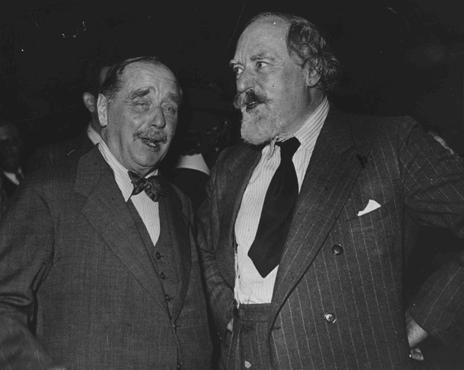
H.G. Wells
In 1933, Nazi students at more than 30 German universities pillaged libraries in search of books they considered to be "un-German." Among the literary and political writings they threw into the flames were the works of H.G. Wells.
Excerpt
Socialism is for me a common step we are all taking in the great synthesis of human purpose...We look towards the day, the day of the organized, civilized world state...Socialism is to me no more and no less than the awakening of a collective consciousness in humanity, a collective will and a collective mind out of which finer individualities may arise forever in a perpetual series of fresh endeavours and fresh achievements for the race.
—First and Last Things, H.G. Wells, 1908
Which of H.G. Wells's Works were Burned?
The Outline of History
Who was H.G. Wells?
British writer H.G. Wells (1866–1946) was born into a lower-middle-class family in Kent, England.
Although best known for science-fiction titles such as The Time Machine and War of the Worlds, it was his non-fiction writing to which the Nazis objected. At the 1933 book burnings Wells' two-volume historical work, The Outline of History: Being a Plain History of Life and Mankind, was thrown into the flames.
As a fighter for social justice, H.G. Wells had early committed himself to socialist principles and for a time was active in the radical socialist Fabian Society. In the 1920s, Wells joined the leftist Labour Party in Britain. He continued to publish popular books in the 1930s, notably the 1933 work The Shape of Things to Come. This "history" of the future predicted a destructive world war that would begin in 1939 and usher in the collapse of civilization. Wells argued for internationalism, for the League of Nations, and against the despoliation of nature.
During World War II, Wells was active in formulating a doctrine of human rights, and he remained committed to this cause until his death in 1946.
Critical Thinking Questions
- If Jews were the principal target during the Holocaust, why were books written by non-Jewish authors burned?
- How did the German public react to the book burnings? What were some of the reactions outside of Germany?
- Why do oppressive regimes promote or support censorship and book burning? How might this be a warning sign of mass atrocity?

